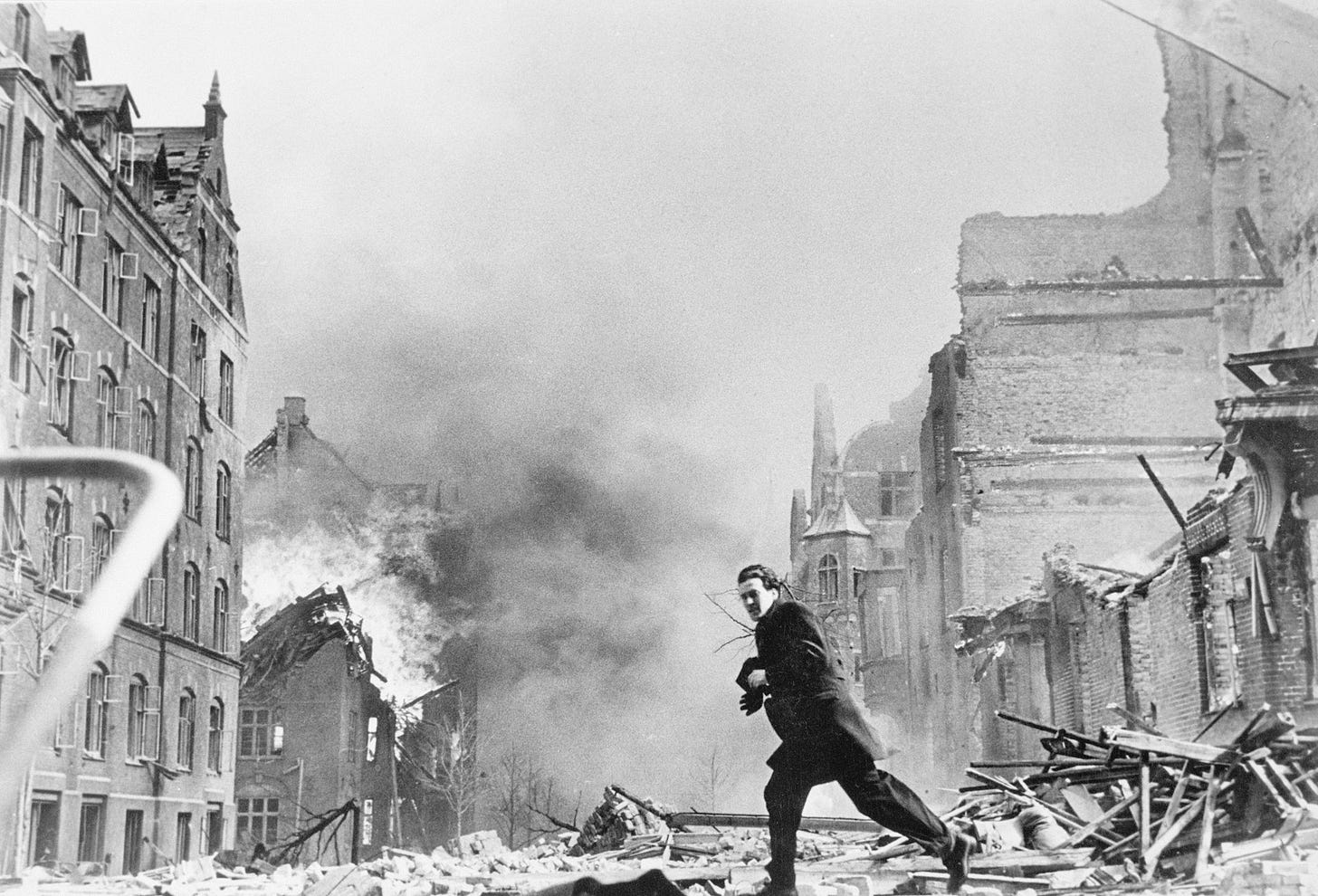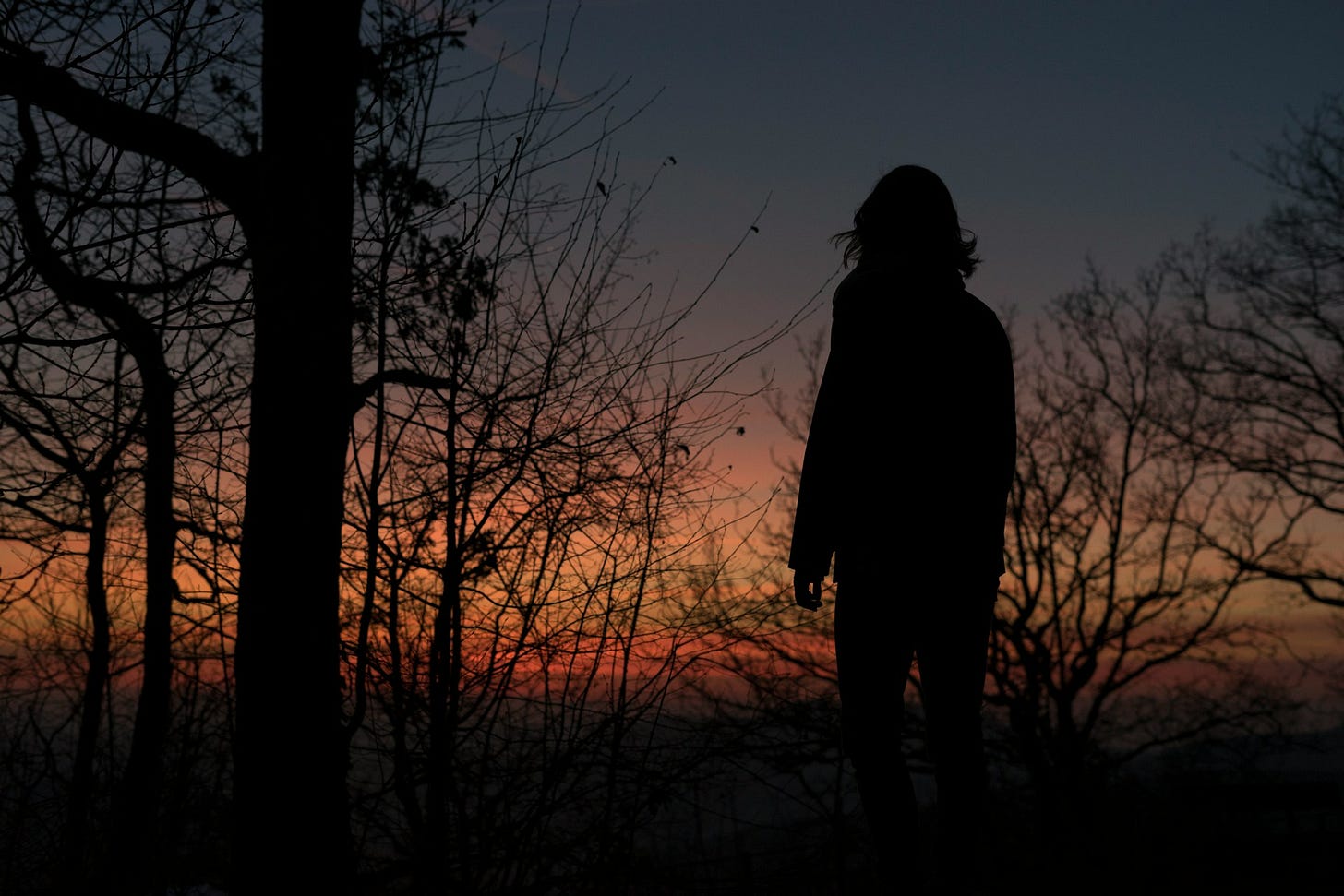Photo by Diana Ewell Engel
One of the invitations of poetry is to come to the emotional meanings of every moment. Muriel Rukeyser, The Life of Poetry, 1949.
Dear Seized Readers,
I’m writing to you on a rainy, unusually cool July Sunday. Although I am grateful for the shower nourishing our vegetable garden and flowers, the slate sky darkens my mood. So, I search for inspiration in my many files of verse by accomplished poets worldwide.
I find a few pages of Muriel Rukeyser’s classic defense of the necessity of verse, The Life of Poetry. Rukeyser wrote this book immediately after World War II. She argues that due to the urgent need to win the war, silence prevailed. This was a time of action when “meanings were lost.” Much of the writing which followed, she contends, likely due to war aftereffects of shock and trauma, were works of escape, books which brought little true emotion to the page.
Photo by the National Museum of Denmark on Unsplash
Poetry is uniquely visceral. Fine verse places the reader almost immediately into the emotion of the moment. There’s no extra space as in a short story or novel to set the scene or introduce characters. This emotional immediacy accompanied by its attendant meanings is why poetry will always be my favorite genre and why I am a poet.
What do you enjoy reading or writing—poetry, historical fiction, fantasy, children’s stories, biographies and history, etc.? What is it about your preferred genre that engages your imagination? Share what you’re reading and writing this summer.
I think about my own verse, ask myself which of my poems have a strong emotional vein, provide universal images that can give the reader an immediate feeling and a meaning of my experience?
I know that many are in the pages of my chapbook, Excavating Light. There is my poem, “Changing Weather” inspired by friend Chip Bristol’s painting of a lake anchored by trees. This long poem is about the pregnancy losses both I and my brother Mike endured. Heart wrenching loss can give us the ability to pull vivid words and images from our minds.
Photo by Raimo Lantelankallio on Unsplash
My poem describes, in these lines as well as others, what I felt: “In dreams, I lay trapped / under the jon boat, / gasping, lungs filling / with water.” The emotional image for my pain is a suffocation like drowning. Excavating Light also contains lighthearted poems, especially about beach vacation times with family.
Do you have personal writing strong in feeling and meaning? Share what you have written.
I recently came across U.K. poet Carol Ann Duffy’s emotionally evocative and beautifully authentic poem, “Prayer.” Over a decade ago, I discovered her masterful verse.
As you read “Prayer,” pay attention to how it affects you. Is Duffy striking a deep emotional chord you can feel and perhaps relate to? I encourage you to read this poem out loud to hear the tenderness she expresses and the music of her chosen words. “Prayer” is an accessible and fairly brief poem. However, she uses some possibly unfamiliar words. Here are a few definitions to help you stay within the emotional landscape of the poem:
minims – short notes
Midlands – central counties in England
Rocklands, Malin, Dogger, Finisterre – coastal regions named in British shipping radio forecasts
Importantly, Finisterre comes from Latin and means “end of the earth” or “land’s end.”
Photo by Homa Amani on Unsplash
Prayer Some days, although we cannot pray, a prayer/ utters itself. So, a woman will lift/ her head from the sieve of her hands and stare/ at the minims sung by a tree, a sudden gift. Some nights, although we are faithless, the truth/ enters our hearts, that small familiar pain;/ then a man will stand stock-still, hearing his youth/ in the distant Latin chanting of a train. Pray for us now. Grade 1 piano scales/ console the lodger looking out across/ a Midlands town. Then dusk, and someone calls/ a child's name as though they named their loss. Darkness outside. Inside, the radio's prayer - / Rockall. Malin. Dogger. Finisterre. -Carol Ann Duffy from her collection, Mean Time, Anvil Press, 1993. Duffy won the Forward Poetry Prize and the Whitbread Poetry Award for this collection. "Prayer" can be found on the All Poetry website, an October 2009 post by Mairi bheag.
Photo by Maximillan Hofer on Unsplash
Delivering Us Into The Emotional Moment
Share your thoughts, your reactions to the poem, “Prayer.”
I find it to be counterintuitive that when we are in distress—not when we’re happy and all is well—we are more prone to see or hear the beauty that occurs before us, a moment of connection. Perhaps this is true because we are intently seeking divine help whether or not we actually realize it. We are searching. We are looking and listening. Such is the situation in “Prayer.”
Duffy shows us those in their moments of despair by creating universal images we can see and easily feel: the woman holding her head in her hands, the man feeling the pain of his age, a sad lodger surveying the Midland houses and shops, the sound of a child’s name being called at dusk.
Photo by Martjin Keesmaat on Unsplash
Notice how immediately this poet takes us into each individual’s sorrow and expresses the moments of grace that are like answers to prayer in beautifully written, metered lines: First stanza— So, a woman will lift / her head from the sieve of her hands and stare / at the minims sung by a tree, a sudden gift. // Second stanza— then a man will stand stock-still, hearing his youth / in the distant Latin chanting of a train. // (His interpretation of the train’s sound could come from his young years, singing in a convent school.) Third stanza – … Then dusk, and someone calls / a child’s name as though they named their loss.
She transports us there. Magically, we hear the notes (birds?) being sung by a tree. We listen to the far-off train whistle and know its sound of longing and allure to our imagination. Many of us have heard the halting piano played by a child (perhaps our own child) learning her scales. Likewise, we have probably perceived at some point in our lives a trembling, worried voice searching for a child. For me, this is her most haunting image poignantly expressed, as though they named their loss. We can hear a name being called as if trying to resurrect, perhaps, a deceased child, but, also quite possibly a time, a place, a memory.
Photo by Michael Weibel on Unsplash
Her ending couplet is simple but powerful. Night has come, and inside the radio is on. We hear the shipping forecast taking us down the British coast, port by port, until we reach Finisterre, the end of the earth. These sorrows and the sudden gifts of received grace happen in all places.
Beyond her tender and wonderfully imaged lines, Duffy has also wrought a Shakespearean styled sonnet, 14 lines of iambic pentameter, no small feat!
Share your thoughts, your reactions to the poem “Prayer.”
Wishing you a good week. Share what you’re reading and writing this summer.
Photo by Ed Wingate on Unsplash












Di, I love to read poetry when I am emotional, either sad or happy, etc. It fills me up, feeds me and stirs my imagination. I love to see how something fundamental as language becomes elevated to art. I enjoyed your analysis.
"Changing Weather" stayed with me after I read it in your chapbook, Diana. Beautiful, memorable imagery.